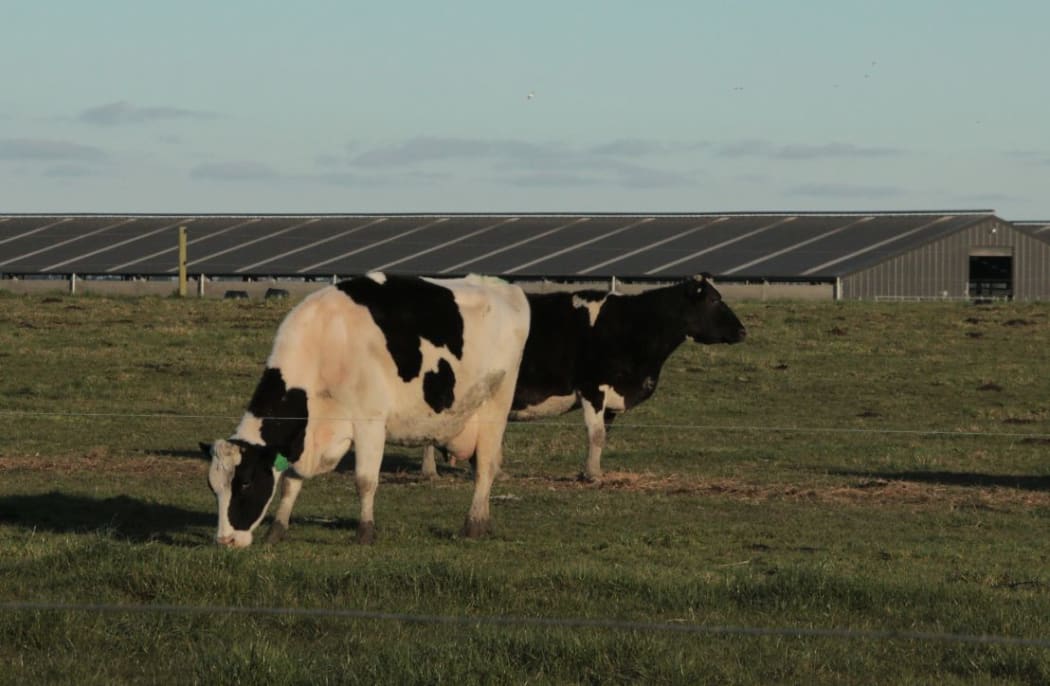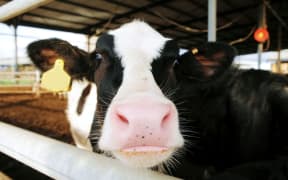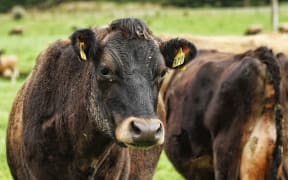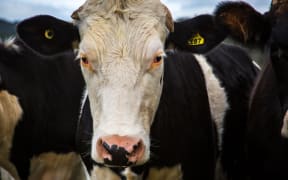Farmers aren't keeping good enough stock movement records and it's slowing down efforts to track the cattle disease mycoplasma bovis, Federated Farmers says.

Cows on the first farm infected with mycoplasma bovis. Photo: RNZ / Alexa Cook
The Ministry for Primary Industries (MPI) told RNZ that it's been challenging trying to trace animal movements from infected properties because some farm records aren't complete.
Under the National Animal Identification and Tracing (NAIT) system, all cattle and deer farmers must have stock tagged and registered, and also record and confirm any animals that are bought, sold or moved.
Waikato Federated Farmers meat and fibre chair, Chris Irons, said the system was not working as well as it could, and it comes down to farmers stepping up.
"There's too many farmers who are just 'oh nah, just don't want to do it', but at the end of the day it's got to be done because that's the only way we're going to be able to track any diseases.
"If we get something faster than m.bovis - like foot and mouth or something - we've got to have a reliable system. At the moment the system is reliant on farmers doing their bit and having their records up to date."
He said NAIT does a good job, but it's only as good as the data put into it.
NAIT chief executive Michelle Edge said the system was working well in the outbreak response for MPI, and for the farmers with up to date records.
"Obviously for those that haven't kept their records up to date it's harder to be able to trace... there's ways around that obviously, but it involves contacting the farmers and conducting a bit more of an investigation.
"MPI have access to NAIT so we've been working with them to do that."
If farmers' stock movements aren't updated on NAIT then it can take longer than usual to track where infected stock may have gone, she said.
"We have to look more broadly at the nature of movements that might have been taken from that premises, we've got to look more broadly at the type of transactions that might have occurred to get to the bottom of where movements might have been occurring over a duration."
When asked if there should be more enforcement of NAIT, Ms Edge said that there will be a bigger emphasis on compliance going forward.
Ms Edge said a report on the review of NAIT should be available next year.
"The main outcomes will be enhancing awareness, looking at compliance, looking at improvements for usability so that we can encourage its use and make sure it's effective in times of endemic disease response or food safety response."
MPI has finished its report on how the disease might have got into New Zealand and it's expected to be released before Christmas.
This week nine specialists from Australia, Canada, the US, the UK and New Zealand are reviewing the report, and the ministry said it is still unlikely to pin down the exact path of disease into this country.






